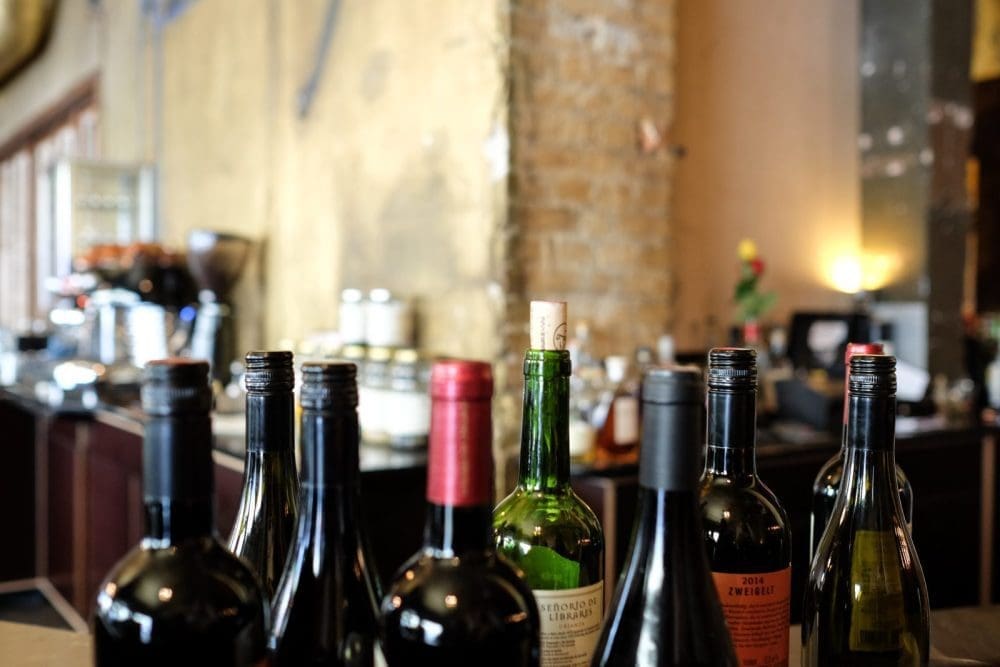In many ways, New Jersey is one of the most progressive states in the nation. Time and time again, Jersey proves to be with the current times in a variety of ways. However, one area where New Jersey’s attraction to progress seems to hit a wall lies in the restaurant industry.
Today, NJ remains one of the hardest states for restauranteurs to obtain a liquor license. This has led to a dining culture that is unique to Jersey’s own— with an ample amount of BYO restaurants to choose from. Some towns, like Rutherford, NJ, don’t issue liquor licenses to restaurants at all.
This is generally not too large an issue. BYO restaurants are fun to eat at, and allow you to drink at your preference and cost. On the contrary, these restaurants are missing out on a major revenue source. Liquor is more profitable than food. A good food cost for restaurants generally sits between 28 and 35 percent— meaning that if a restaurant sells 100 worth of food, it costs them between 28 and 35 dollars to make it. With liquor, this number drops to between 15 and 20 percent. Liquor generates profit. More profit means more money being pumped back into the New Jersey economy. The expansion of liquor licenses is beneficial to New Jersey as a whole.
A statement released by Governor Phil Murphy’s Office reads:
Expanding consumption liquor licenses in New Jersey has the potential to increase sales for both existing restaurants and new restaurants that open due to the increased availability of licenses. The New Jersey Economic Development Authority estimates that reforming NJ’s liquor license system could generate up to $10 billion in new economic activity over 10 years and create upward of 10,000 jobs annually. Additionally, the expansion of liquor licenses under this framework has the potential to generate significant new state and local revenue that could be reinvested into new economic development efforts.
But, why are licenses so hard to obtain in the first place?
Stale Liquor Laws
Laws following prohibition in the US stuck around a tad longer in the Garden State. Since 1948, NJ has capped the number of liquor licenses that a municipality can issue. The formula in which liquor licenses are made available is based on population. For every 3,000 residents, a city may issue one consumption license (bar/restaurant) and for every 7,500 people, the town may issue one retail license (liquor store). Towns that have fewer than 7,500 residents may issue one of each type of license: retail and consumption.
These licenses are issued at what we would consider a “normal” price, so why are the licenses so expensive nowadays? The limited availability combined with the fact that licenses can be sold privately on the market has driven the prices skyward. Over 7,000 restaurateurs in New Jersey are estimated to have paid north of one million dollars for their licenses.
Furthermore, liquor licenses hitting the market in auction style means that chain restaurants and conglomerates will always be able to outbid small business owners for a license.
Progress on the Issue
In a post released by Executive Chef/Owner of Millburn’s Common Lot, Ehren Ryan, it was revealed that the highly regarded chef has been working with Governor Murphy to fix New Jersey’s ancient liquor laws. Part of his statement reads:
“I was incredibly honored to be invited to attend Governor Murphy’s 2023 State of the State Address as his personal guest…
…Governor Murphy outlined his plan for overhauling existing liquor licensing laws through expansion, thus ensuring the creation of a modernized and fair compensation package for existing license holders.”
For the last several years, Ryan has been working with NJ State Senator, Vin Gopal, to draft legislation that would not only make liquor licenses more available and affordable, but also provide a system that supports current license holders who have paid excess amounts of money for their licenses. The system would include a means-tested tax credit for current license holders that are impacted by expansion. Around six months ago, Governor Murphy joined the fight with Ryan and Gopal to get this done.
When reached out to, Ryan provided me with further explanation:
“The legislators of New Jersey need to act. The time has come to modernize the outdated laws and bring New Jersey into the Modern Era. What is proposed is fair and responsible. It has allocated compensation for current license holders as well as reducing the restrictive laws that hinder the operations of our craft brewery industry as well as local distilleries and vineyards.
This is not just an issue for BYOBs but the hospitality industry as a whole,” he told me.
Concerns
Director of Operations for Viaggio in Wayne and Osteria Crescendo in Westwood, Tommy Voter, expressed his feelings on the matter— feeling it is a step in the right direction, but also revealing concerns he has with the legislation:
“That will make the value of our [Osteria Crescendo] license drop significantly. I hope the state will correctly address that,” Voter explained to me.
With how the drafted legislation currently stands, Voter’s concerns will be addressed. It is just a matter of time before we see if it is translated in a way that benefits all restaurant owners.
How to Help
Time is of the essence for this matter. The best thing you can do as a concerned citizen is to reach out to your representatives and urge them to move forward on this long-overdue matter.
Peter Candia is the Food + Drink Editor at New Jersey Digest. A graduate of The Culinary Institute of America, Peter found a passion for writing midway through school and never looked back. He is a former line cook, server and bartender at top-rated restaurants in the tri-state area. In addition to food, Peter enjoys politics, music, sports and anything New Jersey.
- Peter Candiahttps://thedigestonline.com/author/petercandia/
- Peter Candiahttps://thedigestonline.com/author/petercandia/
- Peter Candiahttps://thedigestonline.com/author/petercandia/
- Peter Candiahttps://thedigestonline.com/author/petercandia/


